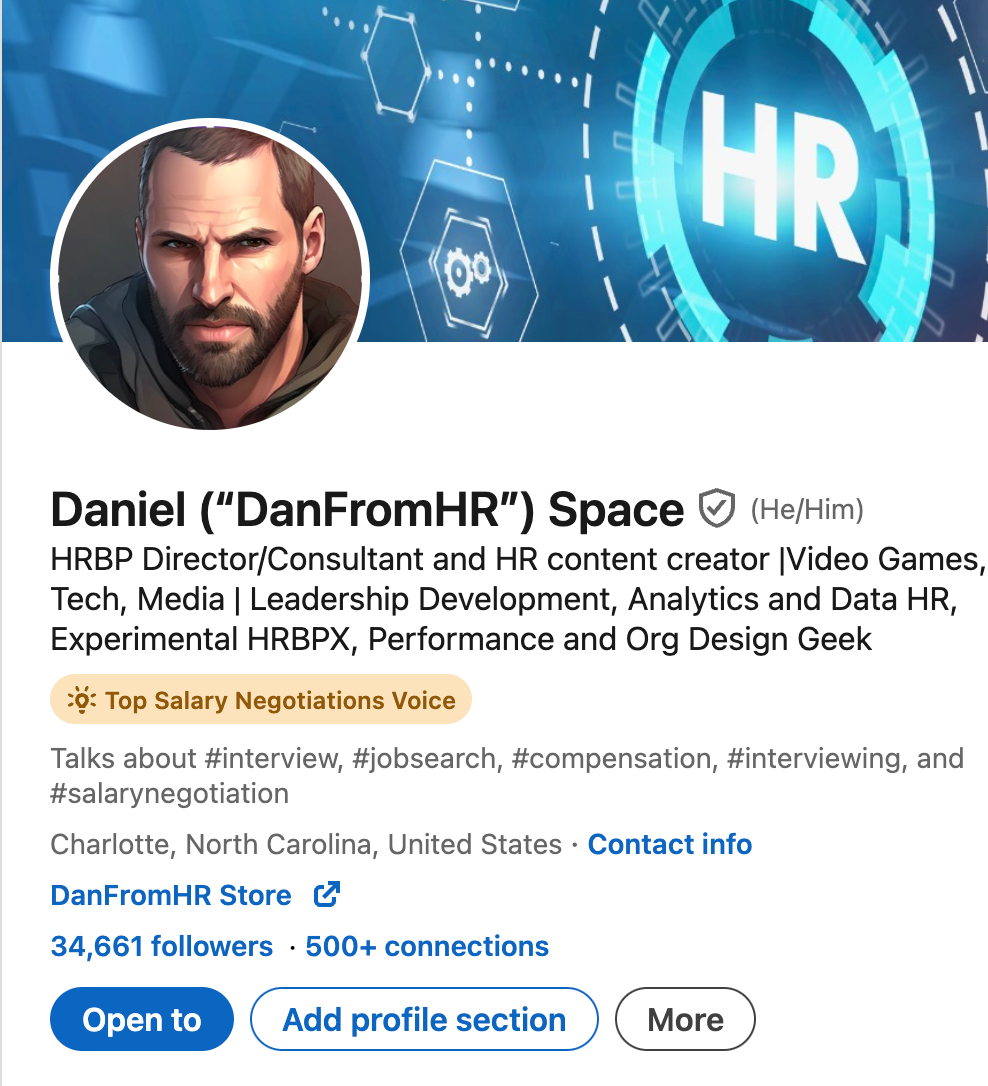
What does "Breaking Into Tech" Mean?
You can't scroll TikTok or Linkedin for more than a few minutes without seeing someone very enthusiastically talking about how great their life is working at a large tech company, (and more importantly) offering their free or paid services on how you too can cross into the promised land of Milk and Honey and reach what is apparently the employment equivalent of Nirvana.
Doing some digging though, and you start to notice a few trends about these posters:
- They generally have less than 5 years of work experience
- They do not work in HR/Recruiting/Management
- They are packaging their content in a very clever product marketing strategy (Hook, Exclusion, Value, Call To Action)
Example: "This is the day of my life working as a Program Manager for Google. I was one of 9 kajillion applicants and I was honored to get the role. Working here has been mind-blowing, I make more money then Elon Musk and today we went skinny dipping in the marshmallow river! I decided I want to give back and make sure other people knew how to nail the interviews, so click on my link below to sign up for my FREE newsletter or use this code to get a 10% discount to my exclusive online course on breaking into Google!"
A Reality Check
Before engaging or considering purchasing products or services, it's important to remember and consider this information:
- "Tech" isn't a prison, or a castle. There is no "breaking in" or "breaking out" of it. It's just a job and employment contract.
- "Tech" can refer to either a job family or an industry. Before deciding if you want to work in "Tech" - it's important to determine if you want work in the job family, in the industry or both.
- When people refer to "Tech" they are usually talking about the large industry giants- casually referred to as FAANG (Facebook, Amazon, Apple, Netflix and Google) or FAANG+ (Uber, Twitter, LinkedIn, Snap, Spotify, etc). It's important to know that each of these businesses are very different and have very different business models. How you would approach working for one is going to be different than how you'd work for another.
- If someone does not have significant (more than 7 years is my rule of thumb, in at least 2 different companies) in a Hiring Manager capacity, HR (Business Partner/Generalist/Manager) or Recruiter - they should be able to tell you exactly what qualifies them to give this advice/product. Simply because someone works at a tech company, does not mean they have any idea how that company hires. If all they have is their personal anecdote, or they've "talked to recruiters" - be suspicious.
- It is very possible to work at a large tech company and make a very good living. A lot of people do this because large companies (including tech ones) include performance bonuses and equity grants as part of their compensation philosophy. It's also very possible to never work at all in one of these companies and earn just as good of a living.
- There are people who have worked at these companies - they have been the one of the thousands or tens of thousands of applicants and gotten that offer...and then they leave. One of my closest friends worked at Google and when it was time for his next opportunity, there was no problem in him making that decision, he didn't feel like he was giving up his life. He was actually quite eager to get into an industry he felt personally connected to. I worked for both Electronic Arts and then Spotify - and though Spotify was a very generous employer and I had a great time there, my favorite employment memories will always be at EA.
All of this to say, it can be a good goal to work for one of these companies, but it's very possible to have a meaningful well-compensated career without stepping foot into one of these companies. Let's take a quick look at some GENERAL pros and cons.
The Pros
- As mentioned above working for larger companies tends to lead to larger compensation packages, and especially when they use a mixed model of salary, bonus and equity.
- These companies are usually very generous and have good benefit packages and inventive or interesting perks.
- Based on your role, level and skills - you may have the opportunity to work in really meaningful ways, introducing innovation, help launch a global product or help change the way the world does something. (This is something I hear a lot about from friends who work at Zoom or Miro).
- Long Term Value. Interestingly enough, I talk to many people who say their "dream" is to work for a Google or Netflix. In reality the true value to working at these companies is that they open doors for you later. We all have familiarity bias and like them or not, these companies are successful. These companies frequently hire from each other and getting one or two of them on your resume will substantially increase your market value down the road.
The Cons
- It can be tough to leave. I know of a few close friends who are caught in a "tech circle" and feel like their only choices are to remain within that industry until time to retire.
- As bright and shiny as they are on the outside, they are simply companies that are made up of people. Bullying, harassment, politics, negative working environments, immaturity, racism, homophobia, transphobia, etc can and DO happen there.
- Elitism. There are groups of people (especially on apps like Blind) who assign value to you based on where you work, and more importantly what compensation you earn. If you aren't a top earner, or don't work for a company considered "prestigious" - it's likely you will be snubbed, ignored or spoken down to.
- Industry volatility - have you been paying attention to how many Tech, Internet or Tech-Start Ups have been in the news for layoffs or rescinded offers?
What to Do?
The bottom line is that while these companies can and do offer a great employment experience, it's important to not fall for the "dazzle" of people that work there in order to buy their services or consume their content - especially since they are exploiting the illusion of prestige and selectivity to activate your FOMO.
- Choosing a selection results in a full page refresh.

